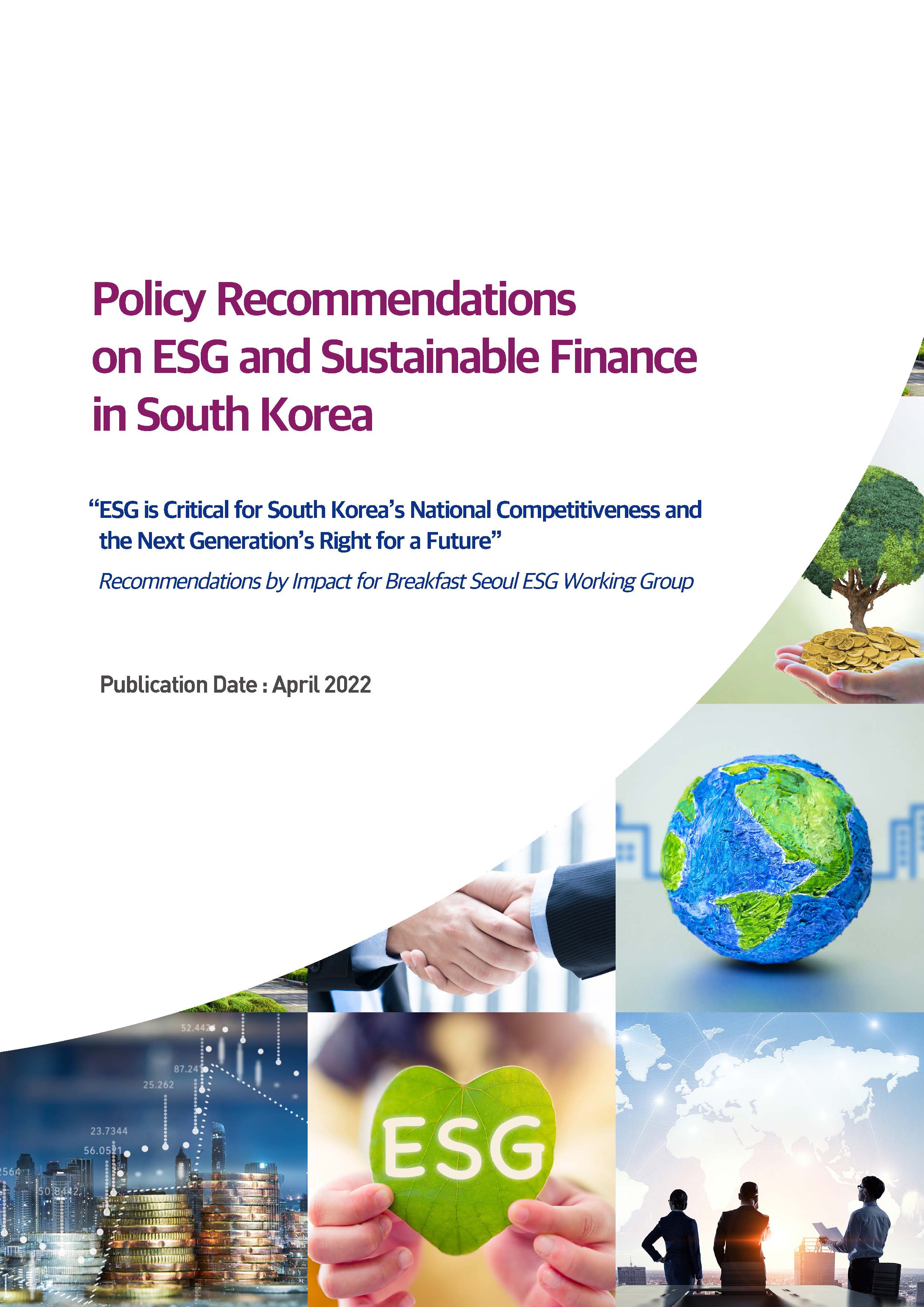|

Impact for Breakfast Seoul, managed by The Asia Foundation Korea, is pleased to share the policy recommendations on ESG and sustainable finance in South Korea to the next President of South Korea. A group of leaders from the private sector, public sector, academia, and civil society met from May to December of 2021 to develop these recommendations. This working group was chaired by Congressman Jung-hun Cho (Transition Korea Party) and President Jinho Chung (The Wells Investment). The Asia Foundation led the development of the report, with support from Merry Year Social Company.
South Korea enters 2022 with the prospect of economic growth in the era of living with Covid, led by strong exports in semiconductors. While some larger firms are doing relatively well, the environmental, social, and governance (ESG) prospects are less clear. There is a persistent perception that many in South Korea are being left behind, including non-export sectors, young people with less access for upward mobility, small and medium businesses, migrants, and other vulnerable groups. In the environment area, while many policy announcements have been made, Korea continue to live with unhealthy air, and criticisms that its climate aspirations are failing to live up to real results. ESG could be a once-in-a-generation opportunity to address social and environmental challenges, but “greenwashing” (using ESG for marketing rather than real social impact) and lack of regulatory clarity remain key barriers. Compounding the confusion is the proliferation of ESG standards, with more than 600 practiced in Korea.
To respond to the above opportunities and challenges, our report includes seven ESG priority recommendations to the next government of South Korea:
Please find the attached PDF to see the report (English).
|







